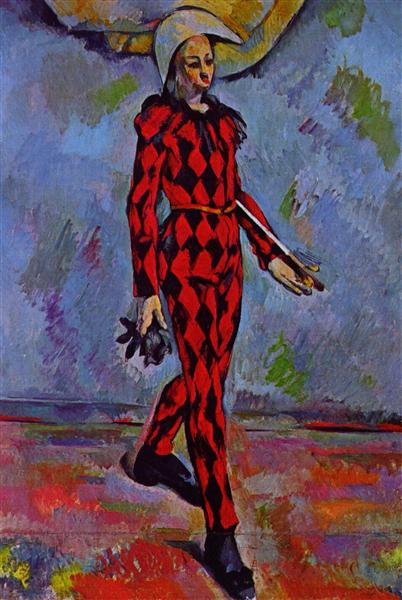描述
PaulCézanne的作品《Arlequín》(1890年)是他在颜色和形状的代表中的精通,并在后印象派的背景下注册。这幅画展示了一个装饰有典型的丑角西装的角色,拥有丰富的艺术符号,使画家的过渡可以在他对人类情感和日常生活的探索中显而易见。
在“Arlequín”的组成中,人们对塞尚对视觉平衡的透彻关注是可以的。主题站立并以一种优雅的手势,试图通过其姿势打破织物的两个维度。该图被抽象和漫射的背景所包围,其中蓝色,绿色和灰色的音调占主导,既暗示着真实的环境,又暗示了对更梦幻般的空间的暗示。这种较低的背景选择使哈勒奎因的身影脱颖而出,是作品的焦点,突出了其表达和衣服。
Cézanne使用的调色板特别显示。充满活力的色彩是哈雷奎因西装的特征,与最阴沉的背景形成鲜明对比,但反过来又揭示了艺术家合并色调的能力。丑角服装中元素的几何形状反映了其独特的技术,其中对象和特征将其简化为基本形式,从而强调体积和结构。这种方法使每天都能获得一个几乎雕塑的维度,每次灌输都有独特的活力。
至于角色,这幅画中的丑角不仅代表了简单的服装。他的存在充满了文化意义。丑角起源于塞德亚·戴尔特(Commedia Dell'arte)剧院,象征着人类生存的二元性:笑声和哭泣,艺术和生活。通过这项工作,塞尚可能想探索人类的这些复杂性,不仅捕捉了角色的本质,而且还捕捉了西装唤起的情感背景。
有趣的是,“Arlequín”正处于塞尚艺术演变的最终地位。在此期间,它是通过结构和颜色的实验来告知的,这在这项工作中显然表现出来。塞尚(Cézanne)受到自然和周围形式的启发,决心通过个人和独特的解释来表达现实,这最终将影响包括立体主义在内的整个艺术家。
总而言之,保罗·塞赞(PaulCézanne)的“Arlequín”不仅仅是戏剧角色的简单代表。这是对形式,颜色和人类情感的深入探索。这项工作邀请观众反思来自普通和崇高之间的相遇而产生的生活和美丽的二元性。作为一项遗产,它是一座桥梁,将传统与现代性联系在一起,挑战观众在感知和现实之间连续的游戏中看到超越明显的游戏。
KUADROS ©,墙上的著名油漆。
手工制作的油画,具有专业艺术家的质量和独特的印章 KUADROS ©.
图片繁殖服务具有满意保证。如果您对绘画的复制品不完全满意,我们将100%退还您的钱。

